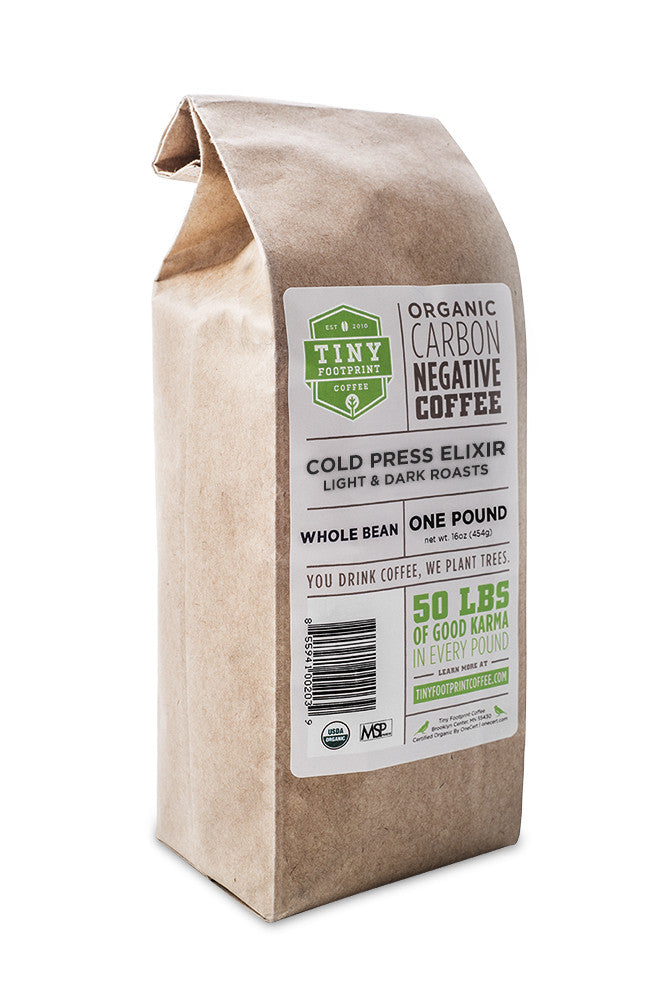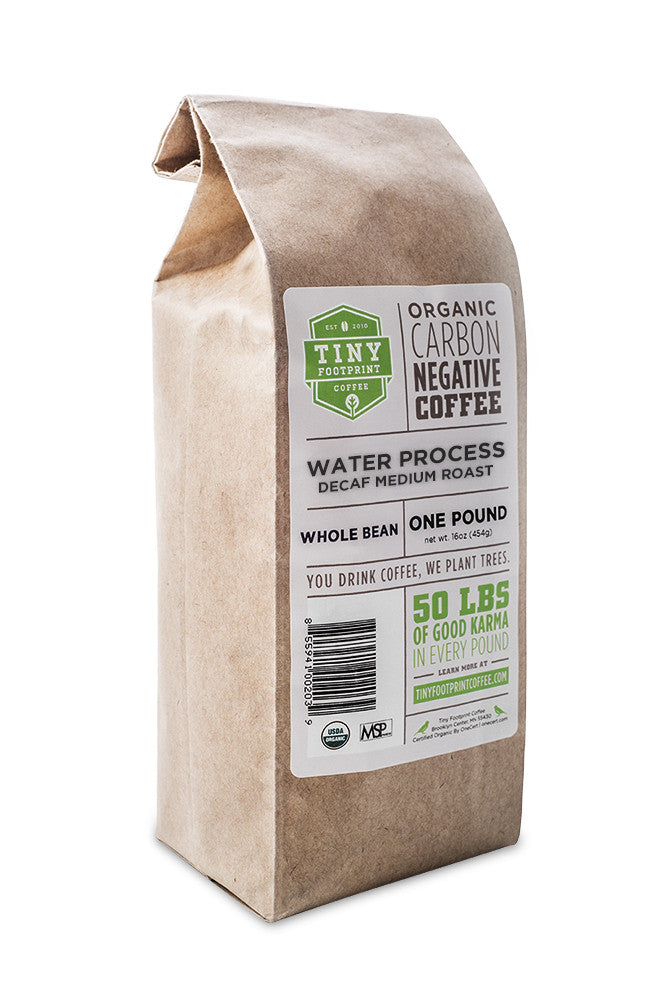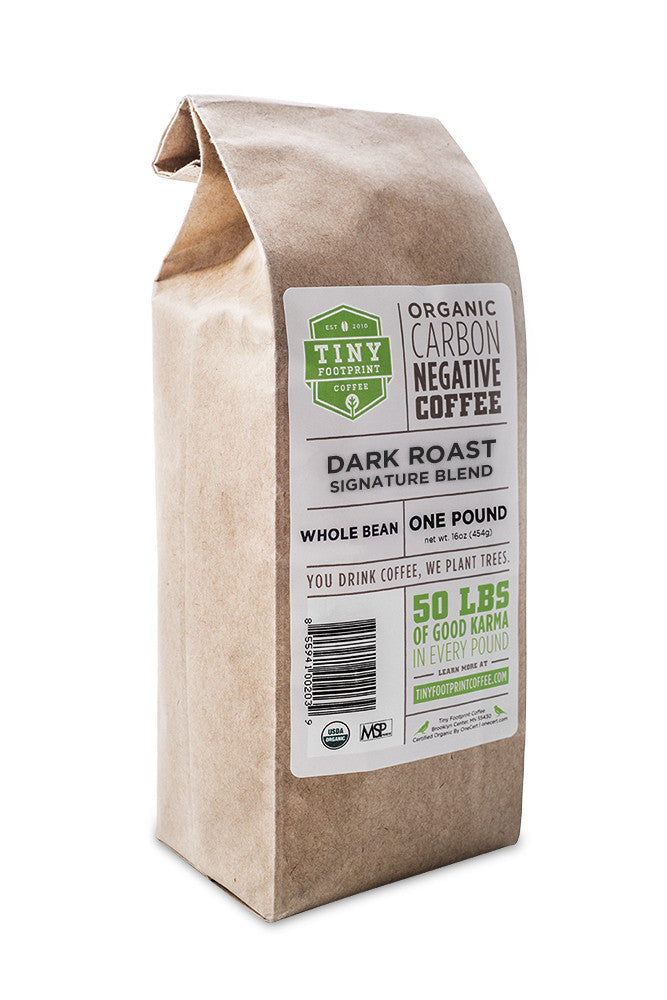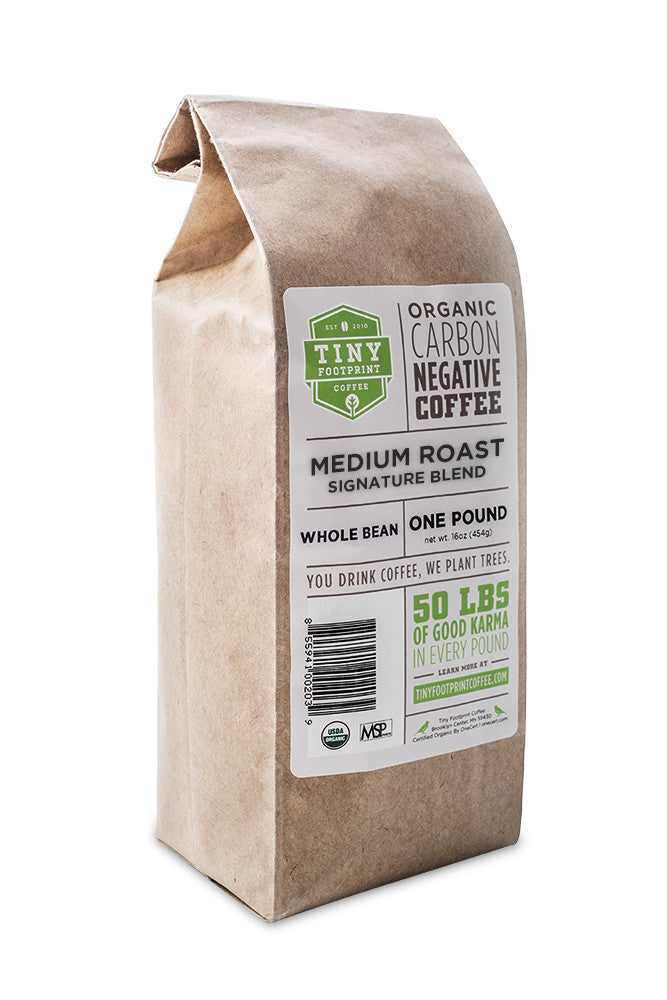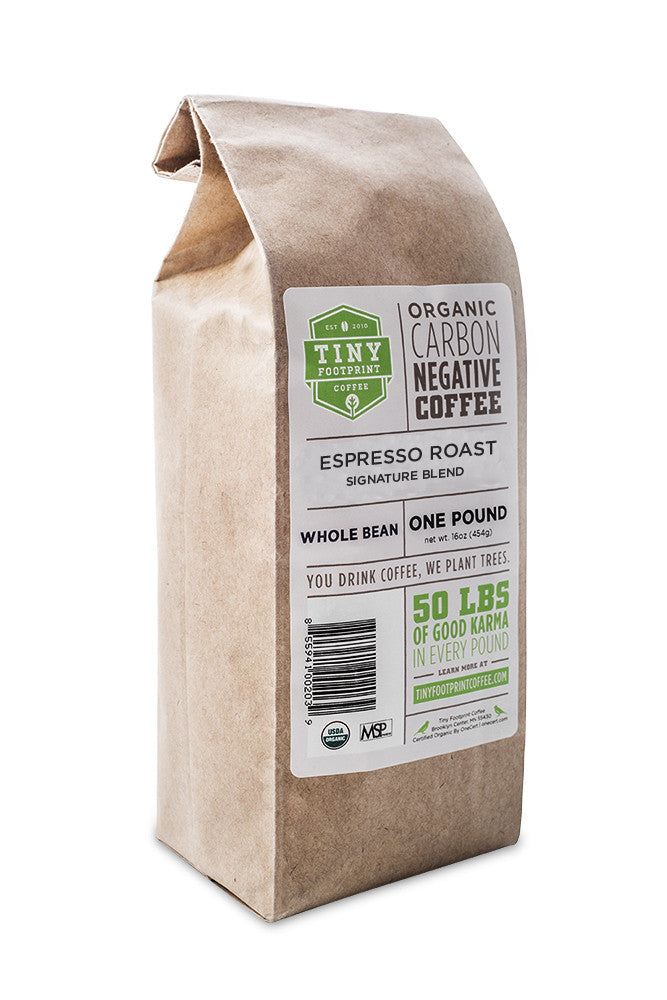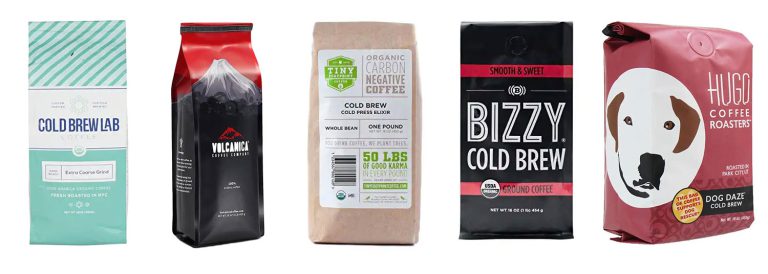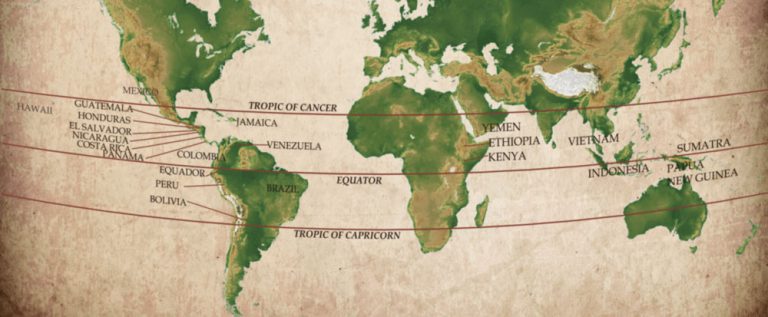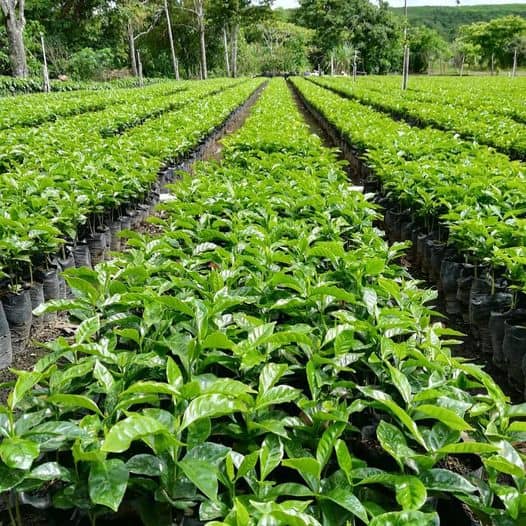Tiny Footprint Coffee: A Coffee Roaster with an Environmental Cause
The global population today marks 7.8 billion. Many scientists predict that in 50 years, there will be a population boom to 9.8 billion. Although it will shrink to 8.8 billion by 2100, this is still not good news. The environment will likely suffer and scarcity good create havoc among those sharing the tight space. Is it too late?
A small coffee roaster has been trying to make a big difference – Tiny Footprint Coffee. Here’s their story.
Tiny Footprint 2025 Review Summary
Tiny Footprint Coffee is a coffee roaster with an environmental cause. It’s the world’s first carbon-negative coffee that supports sustainability and fair labor. They source their coffee beans from farmers who give utmost care to the coffee plants and protect the environment where they cultivate their beans. Also, they pay their growers a fair and competitive wage.
Pros
Cons
Tiny Footprint Coffee: Get to Know the First Carbon-Negative Coffee
Tiny Footprint Coffee is a small coffee roaster that supports environmental sustainability. Every time you buy a coffee bag from their online store, this coffee company plants trees from buying organic, shade-grown coffee beans of coffee farmers from top coffee regions. They also pay the farmers with a competitive market value of coffee beans per pound to earn a decent living.
To ensure that their operations do not jeopardize their environmental initiatives, Tiny Footprint is careful with their practices. From sourcing their beans from growers to roasting and packing. All of Tiny Footprint’s operations are centered on the environment.
For instance, they use a vintage 90-kilo German-built drum roaster to roast the beans. This drum roaster uses a fuel-efficient ribbon burner. Roasting in the vintage drum ensures that beans are roasted to perfection.
Training Classes
If you’re on a journey to learn the art of sustainable coffee, you can enroll in their training classes. Available classes that TFC offer include:
- Barista 1 classes – A training class fitted for beginners and seasoned baristas. The course covers topics about green coffee, roasting introductions, understanding espresso, and microfoam. At the end of the course, you’ll be able to create barista-like espresso drinks.
- Latte art classes – Once you’ve completed the Barista 1 class, you can proceed with this training class. This class sought to teach you to create latte arts from hearts to rosettas. They will also discuss the techniques of perfect latte art.
- Cafe 101 classes – If you’re planning to run a coffee shop, it’s an ideal class to get yourself enrolled. Tiny Footprints will discuss every corner of coffee entrepreneurship. The course includes discussions from concept making to operations.
- Cupping class – Tiny coffee provides a cupping class to help you get to learn more about the coffee beans. Discussions include coffee tasting notes, cupping how-tos, and flavor profiling. This training class will help you hone your palates.
- Brewing Basics – This is a perfect class for home brewing aficionados and baristas. The training class covers topics about the golden cup theory and the hows and whys of grinding.
Each training class costs as low as $40. Yet, if you’re an employee of a business that uses Tiny Footprint coffee, you can use the code BARISTA to comp the training class of your choice.
For other inquiries about the training classes, reach out at nathan@tinyfootprintcoffee.com.
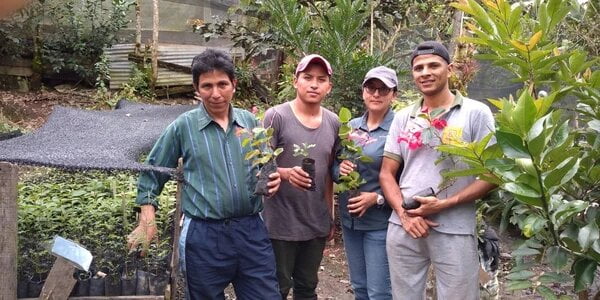
Mindo Cloud Forest Partnership
Mindo Cloud Forest is a popular destination in Ecuador. It’s a travel destination for many nature lovers. You can do birdwatching, hiking, chocolate tours, visit the butterfly farm, and Mindo Zip Lining. Although Ecuador is blessed with rich forests, this Ecuadorian forest has one of the highest deforestation rates.
The deforestation in Mindo Cloud Forest is estimated to be over 300,000 Ha per year. Since the colonial times, the native vegetation in the interadean basin of the forest has been eliminated. At present, it is replaced by farms, towns, and cities and eucalyptus and pine tree plantations.
To maintain the forest, the Mindo Cloud Forest Foundation works hard to protect the woods’ remaining portions. The foundation also partners with businesses that support their reforestation program, and one of these businesses is the Tiny Footprint Coffee.
For every roasted coffee purchased from Tiny Footprint Coffee, the coffee company makes sure that they “take out most of the carbon in the atmosphere” by planting trees. Mindo Cloudforest Foundation is an Ecuadorian environmental agency that gives its full dedication to reforestation. It aims to bring back the forests’ beauty in one of the most bio-diverse areas in the world. These bio-diverse areas are the Chocoan lowlands and the Tropical Andes that form the Mindo Cloud forest.
Coffees Offered
Tiny coffee sources their coffee from the best organic growers and coffee cooperatives. The Tiny roasters test the roast and taste each batch. After careful selection, they buy the chosen beans directly from the farmers. Here are some of the best tasting coffee beans roasted by Tiny Footprint Coffee:
Peru (Ground Coffee)
Peruvian coffee beans are well-known for having a balanced taste. It is one of the best coffee beans in the market today. Most of the Lima coffee from Peru are shade-grown and organic-certified.
This product is a USDA Certified Organic and Fair Trade Arabica coffee, known for its soft caramel flavor, citrus acidity, and clean finish. It is single-origin, shade-grown, and carbon-negative, with a portion of sales funding reforestation in Ecuador's Mindo Cloud Forest, aiding in CO2 removal and habitat creation.
- Cultivation altitude: 1200 meters above sea level and higher
- Origin: Lima (Chanchamayo and Urubamba)
- Roast Level: Medium roast
- Cupping Notes: Well-balanced, velvety mouthfeel, citrusy acidity and sweet-toned clean finish.
- Tasting Notes: With hints of soft caramel and fruity undertones
- Brewing Methods: Drip, Espresso, Pour-over
Cold Press Elixir (Cold Brew)
It is a cold brew coffee made from 100% organic, shade-grown, Arabica coffee beans. Using the vintage 90-kilo German-built Probat drum for roasting. The Tiny Footprint craft roasted their coffee beans sourced from the top coffee region. Thus, this coffee roaster manages to craft beans with clean and flavorful finishes.
What’s remarkable about the Tiny Footprint coffee cold brew is that it is a blend of light and dark roast. This allows you to experience a cold brew with a unique flavor that is vibrant and smooth.
The Cold Press Elixir is a coffee blend designed specifically for cold brew, combining light and dark roasts with Ethiopian coffees. It features a flavor profile that includes sweet and silky richness, bright fruit, and floral notes within a cocoa-like body. This product is made from organic, 100% shade-grown Arabica beans.
- Origin: Ethiopia (Varietal heirloom)
- Cupping notes: Sweet-toned, rich and silky
- Tasting notes: Hints of floral and fruity tones in a cocoa-like body
- Roast level: Light + dark roast
Peru (Whole Beans)
Tiny Footprint has a unique way of roasting their coffee. Using a 90-kilo vintage German-built Probat drum, Tiny coffee can guarantee a delicious South American coffee. The whole bean coffee is versatile when it comes to brewing methods. You have a lot of options in brewing your Tiny Lima coffee.
This Peruvian coffee, with its smooth, rich flavor and caramel apple-like body, is a medium-roast from San Ignacio, Cajamarca, Peru. Produced using sun-dried, fully washed beans at elevations of 1650-1800 meters, it includes Caturra, Typica, Catimor, Mundo Novo, and Pache varieties. This organic and fair trade coffee, packaged in compostable bags, is cultivated by a small, quality-focused cooperative led by Rony Lavan.
- Cultivation altitude: 1200 meters above sea level and higher
- Origin: Lima (Chanchamayo and Urubamba)
- Roast Level: Medium roast
- Cupping Notes: Well-balanced, velvety mouthfeel, citrus acidity, and sweet-toned clean finish.
- Tasting Notes: With hints of soft caramel and fruity undertones
- Brewing Methods: Drip, Espresso, Pour-over
Signature Blend Light Roast (Ground Coffee)
As a carbon negative coffee company, Tiny Footprint is conscious with where they source their coffee. The Tiny roasters buy coffee from farms that use organic farming practices. This is to ensure that the coffee beans harvested are chemical-free. Likewise, the beans are grown naturally in a shade-grown environment.
Tiny Footprint Coffee offers a light and smooth body with mild acidity. It features hints of bright lemon and orange with a gentle cocoa finish.
It is USDA Organic, Fair Trade, and Shade-Grown Arabica coffee. Their product is the world's first carbon-negative coffee, funding reforestation which offsets more CO2 than the coffee's production emits.
- Cultivation altitude: 1200 meters above sea level and higher
- Roast Level: Medium roast
- Cupping Notes: Well-balanced, rich with a gentle finish.
- Tasting Notes: Hints of bright lemons and orange with cocoa undertones
- Brewing Methods: Drip, Espresso, Pour-over
Signature Blend Decaf (Whole Beans)
The carbon-negative coffee also comes in decaf. Tiny coffee used the Swiss Water Method to remove much of the caffeine content of beans they roast by 97 to 99%. Best of all, the process doesn’t use any chemical agents to do so.
This decaffeinated coffee is characterized by a full-bodied, sweet flavor with chocolate and apricot notes, using the Swiss Water method for decaffeination without harmful chemicals. It is the world's first carbon-negative coffee, with proceeds supporting reforestation in Ecuador, and is made from 100% organic, shade-grown Arabica beans, fair trade, and kosher certified.
- Cultivation altitude: 1200 meters above sea level and higher
- Roast Level: Medium roast
- Cupping Notes: Full-bodied and sweet-toned.
- Tasting Notes: Hints of chocolate and apricot
- Brewing Methods: Drip, Espresso, Pour-over
Signature Blend Dark Roast (Whole Beans)
This dark roast carbon negative coffee from Tiny Footprint has a rich flavor profile. It’s a blend of 100% organic, shade-grown coffee from different top-tier coffee farms. Many Tiny coffee lovers consider this signature blend for its consistent roast.
This product is a bold, intense dark roast coffee with a viscous body, featuring a flavor profile that highlights bittersweet chocolate, nut, and fruit notes. It is made from 100% organic, shade-grown Arabica beans.
- Cultivation altitude: 1200 meters above sea level and higher
- Roast Level: Dark roast
- Cupping Notes: Bold and intense with a vicious body.
- Tasting Notes: Hints of bittersweet chocolate, nuts and fruits
- Brewing Methods: Drip, Espresso, Pour-over
Do you like dark roast coffees? Check out our list of the best the Best Dark Roasts.
Signature Blend Medium Roast (Whole Beans)
Another carbon negative coffee from Tiny Coffee is a medium roast. It’s a signature blend of coffee beans that is vibrant and well-balanced. It has a fair level of acidity and does not overpower your taste buds.
This product is a 100% organic shade-grown Arabica coffee, featuring a smooth and rich caramel-like body with bright citrus notes for a sweet finish. It is seasonally sourced from around the world to ensure freshness and high quality and is craft-roasted using a modernized vintage Probat drum roaster. The brand is carbon-negative, contributing to reforestation in Ecuador's Mindo Cloud Forest to offset carbon emissions.
- Cultivation altitude: 1200 meters above sea level and higher
- Roast Level: dark roast
- Cupping Notes: smooth and rich body with pleasing sweet finish.
- Tasting Notes: with hints of chocolate infused with caramel and citrus undertones
- Brewing Methods: Drip, Espresso, Pour-over
Espresso Roast (Whole Beans)
It’s an organic whole bean coffee perfect for a homemade latte or cappuccino. It brews well with any espresso machine. If you want to drink it straight without any fanciness, you can brew it with drip coffee maker. If you’re looking for an espresso roast that it’s not too dark and almost close to the burnt taste, this can be the one.
This coffee features a flavor profile that balances dark, semisweet chocolate tones with lighter citrus and floral notes, and is suitable for various preparations, including lattes and cappuccinos. It is the world's first carbon-negative coffee, supporting reforestation in Ecuador's Mindo cloud forest. The beans are 100% organic and shade-grown Arabica.
- Cultivation altitude: 1200 meters above sea level and higher
- Roast Level: dark roast
- Cupping Notes: dark, creamy and semi-sweet-toned with mild acidity
- Tasting Notes: with hints of chocolate, fruit and floral tones.
- Brewing Methods: Drip, Espresso, Pour-over
The Verdict
Tiny Footprint Coffee is a coffee roaster with an environmental cause. It’s the world’s first carbon-negative coffee that supports sustainability and fair labor. They source their coffee beans from farmers who give utmost care to the coffee plants and protect the environment where they cultivate their beans. Also, they pay their growers a fair and competitive wage.
It’s a Minnesota-based small coffee roaster certified organic by OneCert. For every pound of coffee they sell, they plant trees to remove at least 54 lbs of carbon dioxide in the atmosphere. Best of all, this environmental initiative aims to provide a habitat for native animal and plant species.
If you’re looking to buy highly sustainable coffee at a good price, then you should consider Tiny Footprint Coffee.
From the list of Tiny coffee above, which blends have you tried? What brewing method can you recommend to get that perfect cup of Tiny coffee? Please share with us your Tiny Footprints thoughts at the comments below.
Interview with Tiny Footprint Coffee Founder, Alan Krohnke
I was fortunate enough to spend a solid hour on the phone with Alan Krohnke, the founder of Tiny Footprint Coffee. The conversation was wonderful but Alan had answers for pretty much every question I asked, but my questions tend to get a little ” out there” when I’m excited so I’ll do my best to paraphrase some of the more interesting takeaways from our conversation.
Big Cup of Coffee (BCOC): With regard to the coffee business and social/environmental impact, what came first? Was the business created with the principles of sustainability in mind or was it more of an evolution?
ALAN: Before leaving another roaster after an attempt to purchase it fell through and founding Tiny Footprint Coffee, I was already aware of the connection between Earth, its resources, and how habitats were impacted by mankind mainly because of the influence of my parents and the love they shared for birding.
The partnership with Mindo Cloud Forest was a direct result of my family’s passion for environmental protection. When my brother finished his studies at Evergreen College in Washington State, he relocated to Ecuador, took over an eco-tourism outfit, got involved with the local fight to to prevent reckless oil development, and started a carbon offset/ reforestation project.
Later on, with the help of a marketing team, we did an extensive carbon footprint analysis and realized how we could offset some of our negative impact by funding reforestation. The relationship was already there. It was just a matter of making the impact visible.
BCOC: 2020 has been an “interesting” year for obvious reasons. How has Tiny Footprint been impacted by the surge in direct customer sales either through your site or on Amazon?
ALAN: Obviously, this was a tough time for a lot of our clients that either used our beans for retail sales or purchased large amounts for offices and commercial spaces. Luckily, we had set up our subscription module back in January and we’ve seen consistent growth across the board.
BCOC: Can you help me understand cold brew coffee? It’s so popular lately and while it’s delicious, it seems like the ratios provided by other roasters, online reviewers, etc are all over the place. What’s the secret?
ALAN: Again. We were lucky with this too. Our Elixir Cold Brew was extremely popular on Amazon back a few years ago. We had seemed to beat the popularity surge and it’s now nearly impossible to compete in this arena.
Traditionally, a gallon of water could be combined with 16 ounces of ground coffee and then diluted 1:1 upon serving. This was a decent concentrate but there were mixed reviews and sometimes bitterness was a real problem.
Since there are many factors at play, we did alot of test brewing to determine which beans, blends, roasts, and ratios would result in the MOST CONSISTENT end product.
As of today, we’ve landed on a 6:! ratio for a good concentrate and, obviously, we recommend our Cold Brew Blend. The 1:1 dilution works fine but can be personalized to taste for a more sweet flavor or more clarity depending.
BCOC: Coffee can be really expensive. While there are obviously differences in harvests, the bean varietals, the region, fair wages, etc, what’s going on in the marketplace? Is there a scarcity issue or is price really an indicator of quality?
ALAN: Pricing is VERY complex for coffee. However, there is much more consistency among pricing/quality than in the past. The retail price of a cup of coffee is definitely correlated to the quality of that cup. With our retail clients, we spend a lot of time helping them figure out the best roasts to meet their customer needs-in terms of price and taste.
Also, there are less “hidden gems” available in the global market. While disease resistant strains are being developed and crop research is still a big part of the coffee industry, the prices currently reflect the quality and this is a good thing.
After several years in the industry and getting to know suppliers from across the globe, I can honestly say that commercial grade coffee has truly advanced in the last 10-15 years with regard to cupping standards, sensory evaluation, etc. Many of the growing regions have a lot of help from governments to ensure the long term viability of their coffee products and it’s not only about profit – quality is a big factor!



